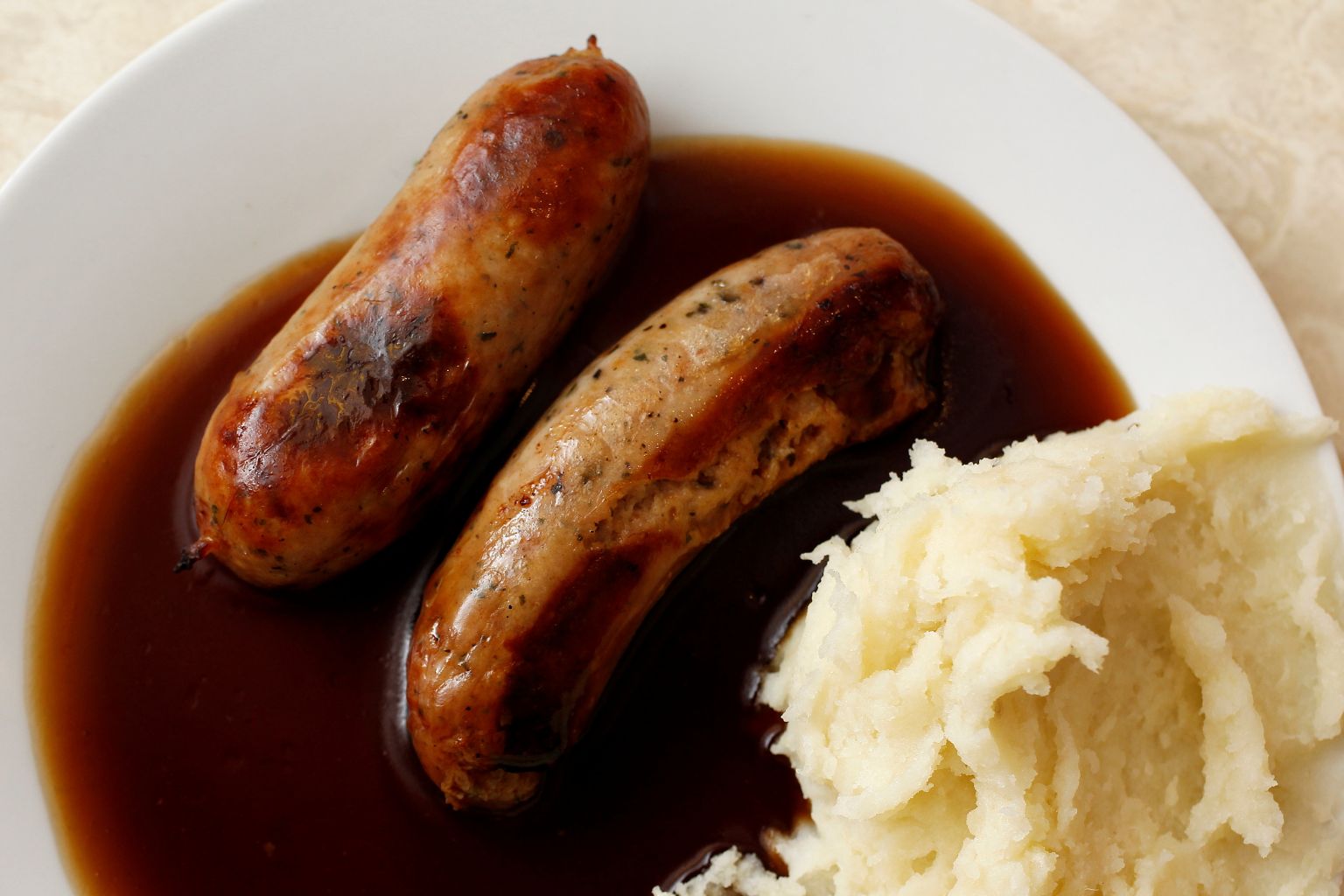Britain and EU agree on truce in Northern Ireland 'sausage war'
Sign up now: Get ST's newsletters delivered to your inbox

The row, dubbed the "sausage war", centred on the movement of chilled meats from Britain to Northern Ireland.
PHOTO: REUTERS
Follow topic:
LONDON (AFP) - The threat of a "sausage war" between Britain and the European Union was averted on Wednesday (June 30), after both sides agreed to delay the need for checks on chilled meat shipped to Northern Ireland.
Britain's Brexit minister David Frost called it a "sensible extension" to the previous grace period and a "positive first step", but said a permanent solution for post-Brexit trade to the province was still needed.
"Northern Ireland is an integral part of the United Kingdom and its consumers should be able to enjoy products they have bought from Great Britain for years," Mr Frost added.
In Brussels, European Commission vice-president Maros Sefcovic warned that "we are not issuing a blank cheque" and that "this solution is of temporary nature".
"This extension will allow stakeholders, and especially supermarkets in Northern Ireland, to continue to adapt the supply chains to the post-Brexit situation - something yet to be completed," he said.
London angered Brussels by threatening to unilaterally extend a grace period for implementing the checks, sparking European threats of reprisals, including targeted tariffs.
But the rhetoric cooled in recent days after the British government submitted a formal request for an extension.
Brussels and London jointly announced on Wednesday that the grace period would be extended until Sept 30.
No rolling extensions
The UK formally left the European single market and Customs union on Jan 1, nearly four years after the public voted to leave the EU in a landmark referendum.
It has proven fiendishly difficult to agree on trade arrangements for Northern Ireland as the province, separated from the British mainland by the Irish Sea, has the UK's only land border with an EU country - the Republic of Ireland.
EU officials have been anxious to ensure that goods crossing that border post-Brexit meet the bloc's standards and Customs requirements.
But the Irish border is hugely politically sensitive, as keeping it largely open was a requirement of the 1998 peace deal that ended decades of sectarian violence over whether Northern Ireland should stay under British control.
Britain and the EU signed a last-gasp trade deal on Dec 24, with a separate "protocol" governing trade from mainland Britain - England, Scotland and Wales - to Northern Ireland.
The protocol places Customs controls on certain goods crossing the Irish Sea, which pro-British unionist communities fear puts Northern Ireland's place in the UK under threat, an issue that has triggered unrest.
An EU official told Agence France-Presse news agency that the three-month extension would be used to discuss a broader agreement on animal and plant products.
"We do not intend to continue with rolling extensions of grace periods," the official said.
"Northern Ireland deserves stability and predictability, and the best way for that is to have a permanent solution, mutually agreed," they added. "These three months will need to be used wisely."
Brussels "will be tough" if Britain fails to honour its commitments in the Brexit deal, the official warned.
'One of many problems'
London is unhappy with the protocol, pointing to rioting in April among unionist communities.
The potential for further violence in July is high, as hardline unionists perform ceremonial marches marking the anniversary of Protestant king William of Orange's victory over the Catholic king James II in the 17th century.
The Orange Order on Wednesday said smaller parades would take place at 100 locations across Northern Ireland on July 12, instead of the normal 18 main events due to Covid curbs.
Mr Frost warned that the row over meats "is only one of a very large number of problems with the way the protocol is currently operating".
"Solutions need to be found with the EU to ensure it delivers on its original aims: to protect the Belfast (Good Friday) Agreement, safeguard Northern Ireland's place in the United Kingdom, and protect the EU's single market for goods," he said.
"We look to work energetically with the EU to do so."

